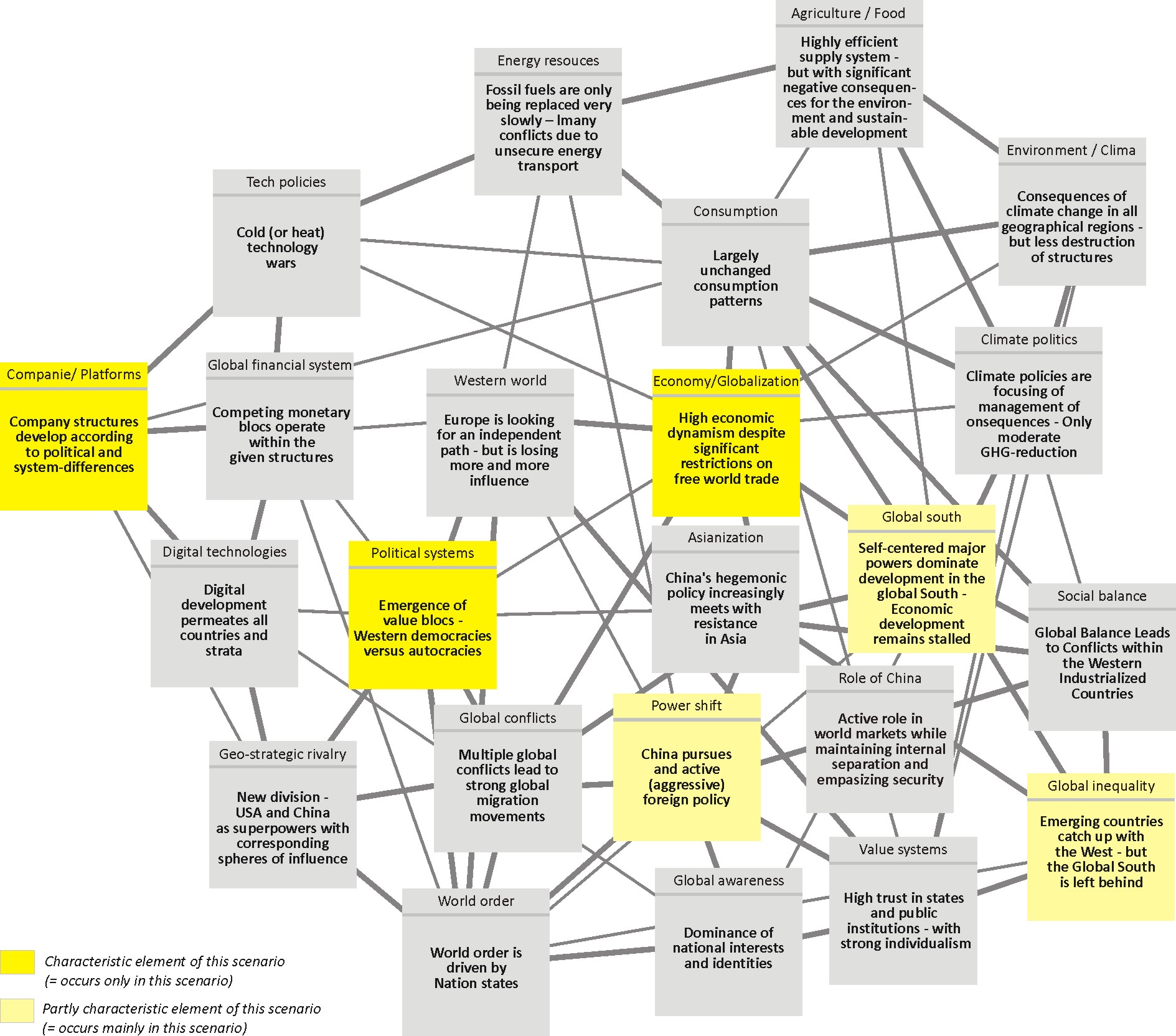New value blocs
The Cold War is back
- New division of the world – emergence of value blocs: Western democracies versus autocracies in a new “cold war”
- China has an economically and technologically leading position despite strong domestic orientation, but its hegemonic policy increasingly meets with resistance in Asia
- Company structures develop according to political and system-differences
- Multiple global conflicts (including intensive climate change) lead to strong global migration movements
- Sustained slumps and low global economic momentum despite largely free trade system
The U.S.-centered and unipolar world order that emerged with the collapse of the Eastern bloc was only a brief interim phase. With the rise of China, first economically and later politically and militarily, a new competitor has emerged for the U.S. that is far more powerful than the Soviet Union ever was. Based on its economic strength, Communist China is creating its own global alliance, ranging from selected neighbors to many states of the global South to individual European and Latin American countries. At the same time, a Western value bloc dominated by the United States is forming. Europe is searching for its own position, but is constantly torn between human rights-based policy and its own strategic and economic interests, so that it is losing influence overall. Even other major powers such as Russia and India are repeatedly forced to position themselves clearly in the new system competition.
China in particular as well as corresponding emerging countries are catching up with the West – and in some cases achieve leading positions in relevant regions and industries. Other states in the global South are being left behind both economically and politically. As a result, a multitude of global conflicts are occurring, often with a connection to the new West-East conflict. Global migration flows are evaluated from an ideological point of view. The traditional industrialized countries are entering into an efficiency competition with their challengers and are lowering environmental and social standards in the process, so that internal conflicts emerge, which are further exacerbated by immigration.
The world economy continues to develop dynamically – at least within the individual system blocs. Further global exchange is also taking place, but is slowed down by numerous restrictions, different technology standards and the emergence of competing currency systems. Corporate structures in the two power blocs are also developing differently: While a wide range of different companies with different philosophies and strategies are developing in the West, the Chinese power bloc is focusing on technologically focused operations and centralized control.
The consequences of climate change are felt in both hemispheres, but are kept within manageable limits in the framework of the respective climate policies. However, there is no further global coordination or consistent restructuring of the economy away from climate-damaging greenhouse gases. The agriculture and food industry also primarily follows efficiency targets while ecological aspects are often not taken into account.




